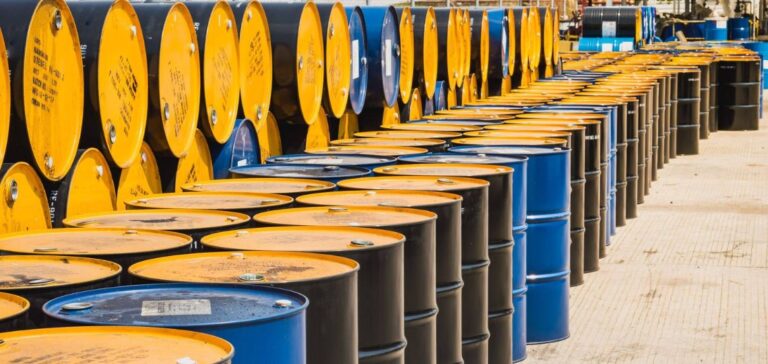U.S. crude oil inventories fell by 1.4 million barrels last week, according to the U.S. Energy Information Administration (EIA). This reduction follows a substantial rise the previous week, reflecting increased exports and refining rates after a decline in refining capacity in recent years. The market reacted with fluctuating prices, indicating a slight recovery in the field.
Market influence and price reactions
Total US reserves now stand at 459.5 million barrels, 3% below the average for the last five years. Crude oil exports also rose by 500,000 barrels a day, to 4.4 million. Matt Smith, oil market analyst for Kpler, commented:
“Stronger refining activity and higher exports favored a slight decrease in crude inventories, helping to reduce some of last week’s large build. “Adding that, “Accelerating refining activity also resulted in very modest increases in inventories for both gasoline and distillates, rounding out a rather innocuous report.”
Prior to the release of the data, oil prices were down by around 0.50%. After their publication, Brent crude for July delivery recovered, losing just 0.04% to $83.13 a barrel. A barrel of West Texas Intermediate (WTI) for June delivery rose by 0.04% to $78.41. US production remains close to its record, at 13.1 million barrels per day.
Refining dynamics and strategic reserves
Refineries increased their rate of activity from 87.5% to 88.5% of capacity, a long way from the 2022 crisis. This slightly increased distillate and gasoline inventories. US strategic reserves (SPR) rose by 900,000 barrels to 367.2 million barrels. Fluctuations reflect the relative stability of the market, despite seasonal variations.
The fall in crude oil inventories was due to increased refinery activity and higher exports. Production and refining trends continue to influence oil markets. Despite price variations, the situation remains stable, showing that seasonal fluctuations and refining capacity remain major factors influencing the oil market.






















